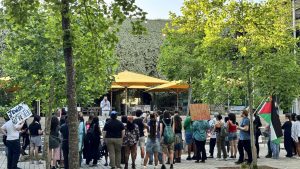No headline provided

February 10, 2011
Is 25 the new 15? Many parents find that their adult childrenhave one foot in adulthood and the other back in their childhoodbedroom.
Many factors explain this alarming trend. Times are tough, andthat means a lot of young professionals are looking to Mom and Dadfor help. Many young adults who entered the workforce beforemassive layoffs began may still have jobs, but wage freezes couldprevent them from moving out, or affording the lifestyle theythought their new job would provide them. Those who had yet toenter the workforce may be waiting for the unemployment rate todrop or going to grad school.
Either way, it’s likely your children have asked you forfinancial assistance and, if they haven’t yet, may eventually doso. Because you are a parent, your natural inclination may be tohelp them without any regard to your own financial well-being. Thatis why it is important to think of helpful but affordable ways toassist your children through these financial challenges. Here aresome tips to guide you:
Pay their insurance premiums
If your children have car insurance, renter’s insurance,homeowner’s insurance, or lifeinsurance, these key protections may be the first to go whentheir financial situation looks dire. Instead of allowing them torisk forgoing insurance coverage, offer to pay their insurancepremiums for a limited period of time. This fixed expense wouldbe easier for you to budget than a large loan, and you can resteasy knowing that you are providing them with extremely valuableprotection.
Offer your skills, not money
In this challenging economy, some parents cannot afford toprovide any financial assistance to their children. Parents withcertain skills can save their children money by offering to tune uptheir car, paint their home, fix their plumbing, or repair faultywiring for free (or just the cost of materials). Parents can alsorun errands for their children or offer free babysitting. It isimportant to set limits from the beginning so you don’t feel takenadvantage of and your children have realistic expectations of thehelp that you give to them.
However you decide to help your children, don’t lose sight ofyour own needs and goals. Retirement may be just around the corner.Spending your retirement savings to help your children could hinderyour quality of life in retirement. When you follow thesesuggestions, your children get the assistance they need and youretain the retirement savings you’ve worked so hard to build.























Leave a Comment